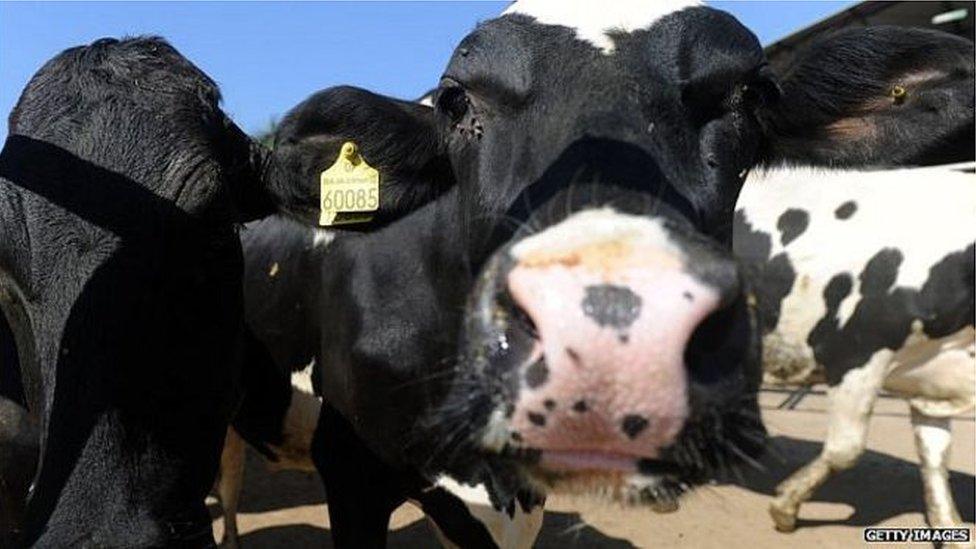Brexit challenges agri-food industry, say Lords
- Published
- comments

Milk from a cow in NI could cross the border five times before ending up in a bottle of Irish cream liqueur
Tariff and non-tariff barriers to trade pose a particular challenge for Northern Ireland's agri-food industry, according to a House of Lords report.
Huge amounts of produce criss-cross the border for processing every week.
Delays and additional paperwork could add to costs, said the report from the House of Lords European Union Committee.
Checks could disrupt supply chains which see companies operate un-restricted on both sides of the border.
'Illegal movements'
Written evidence to the committee by the Department of Agriculture and Environment here warned of the prospect of illegal movements to circumvent such checks.
Almost 30% of Northern Ireland's milk is processed in the Republic of Ireland, which also receives 40% of Northern Ireland's live lamb exports.
Pigs imported from the Republic account for about 30% of animals slaughtered in Northern Ireland's pork processing plants.
Milk from a cow in Northern Ireland could cross the border five times before ending up in a bottle of Irish cream liqueur, the Lords committee was told.
Mixed message?
The report recommends that the UK government will have to balance "complex interests" as it negotiates new trading relationships after leaving the EU.
These include a fair deal for farmers and the need to maintain high standards of food production while delivering affordable food.
At present the government was sending a "mixed message" to the industry, the report found.
It said the UK government's vision of being a leading trading nation with few barriers "did not sit easily" with its commitment to high animal welfare standards which can add to production costs.
The report found that combining and delivering both could be "a considerable challenge".
There would need to be continued income support for farmers for a period post-Brexit to help them as a new domestic agricultural policy takes shape, added the report.